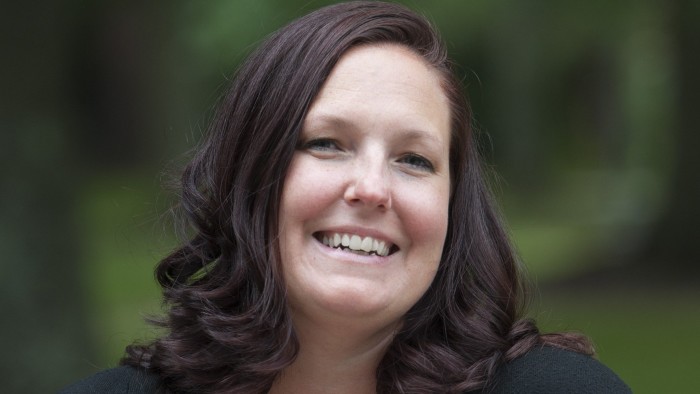Moocs struggle to lift rock-bottom completion rates

Roula Khalaf, Editor of the FT, selects her favourite stories in this weekly newsletter.
Much of the early enthusiasm for massive open online courses, or Moocs, focused on how they could disrupt and democratise education — opening elite universities’ courses to the masses. They have long faced one stumbling block, however: barely anyone who starts a Mooc completes it.
A recent study by academics at the Massachusetts Institute of Technology found that online courses had an astronomical dropout rate of about 96 per cent on average over five years. The research, which studied people who both registered and viewed a course by MIT and Harvard on their joint online learning platform, edX, also found that this figure had not improved between 2013-14 and 2017-18.
Given such alarming completion rates, have Moocs flopped?
Anne Trumbore, senior director of Wharton Online, part of the University of Pennsylvania, says completion rates are the wrong measure of success. She says many people register or start online courses because they are curious and never intend to stick it out.
Nina Huntemann, senior director of academics and research at edX, says a better indicator of success is whether students who actually begin a course engage with it to a high degree.
She also argues that students can acquire knowledge and skills without formally finishing a course. “We don’t see completion rates being a goal,” she says. “People poke around to find parts of courses that help them, not necessarily every module.”
EdX tracks how frequently students watch videos and submit assignments. It uses the data to “nudge” them into finishing modules by sending updates and reminders to complete tasks.
Engagement is 30 per cent higher when students have been nudged, according to Ms Huntemann. “If they struggle on a course section it might be because the material is not worded clearly enough, or videos are too long,” she says. “Our university partners use that data to produce course iterations.”
Another strategy is adding interactivity to online courses. Spain’s IE Business School helps students learn about setting a pricing strategy using simulation. Students set the rates of an airline and receive feedback on the impact their decisions have on the bottom line.
Martin Rodríguez Jugo is a director at IE Publishing, an organisation that develops and distributes IE Business School’s learning material. He says the 12-15 per cent completion rates for IE Moocs is due to this interactivity. “Learning is improved when students apply the theoretical concepts to practical scenarios,” he says.
FutureLearn, an online course provider owned by the Open University, has focused on peer learning to support completion rates. Students discuss what they have learnt and share knowledge on the company’s social network.
That addresses a common challenge with online learning: the connection with other participants and instructors. “We want to make online learning less of a solitary experience,” says Simon Nelson, FutureLearn’s chief executive, noting that the platform’s completion rates among students who start courses is about 20 per cent.
Another trend is charging for courses that include tutoring or a certificate of completion. Rice University’s Jones Graduate School of Business and 2U, an education technology company, are developing a portfolio of short, online courses for business executives.
The first course, on real estate development and investment, will be launched in June 2019 and will cost $2,800. Because the course is not free, Michael Koenig, the school’s associate dean for innovation initiatives, expects completion rates to be around nine in 10. “When people put skin in the game, they are more dedicated.”
Critics say paid-for courses reduce access to education and are at odds with the philanthropic and egalitarian ethos of the first Moocs.
Mr Koenig’s response is that high-quality courses require investment in terms of money and faculty time. “We are trying to figure out how to provide education that is sustainable for the learner and the university,” he says.
Rice’s expected completion rates also reflect how people are using online learning to advance their careers — graduates will receive a Rice Business Executive Education certificate, which they can put on their CV.
Research suggests this can help students who are looking to get ahead in their careers. Nearly three-quarters of 600 employers polled by FutureLearn said evidence of online courses would help them make a decision about whether to promote an employee.

Online courses can also lead on to a full degree. Emily Parana, 41, a university teacher, enrolled in a cyber security “MicroMasters” on edX. The online access gave Ms Parana a way to study something that she would not have enjoyed otherwise: there were no suitable on-campus courses within a reasonable distance of her Pennsylvania home.
There was a second benefit for Ms Parana. Her online course helped her gain admission to a digital masters degree in computing security by providing academic credit towards it.
Moocs may be becoming less massive and less open. But their potential for students remains big.
Comments